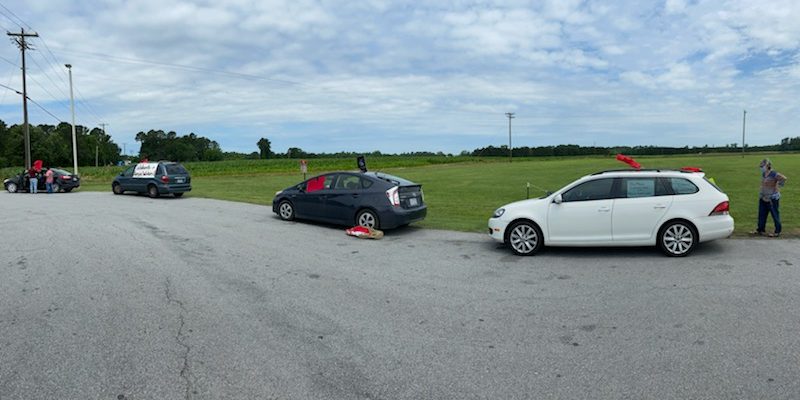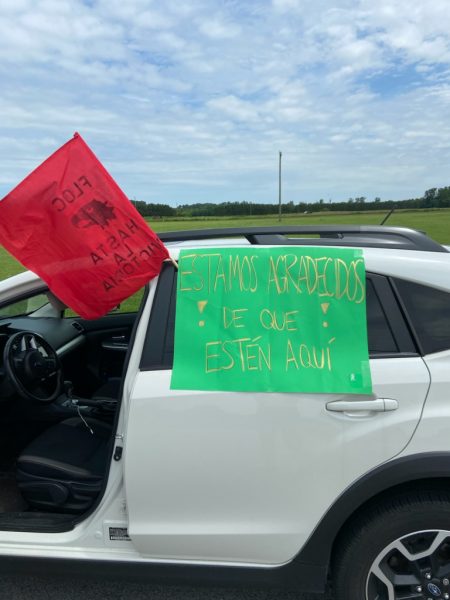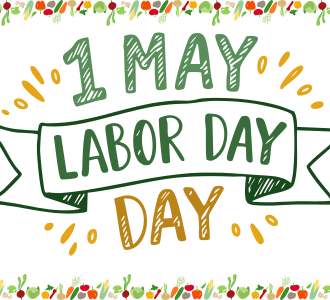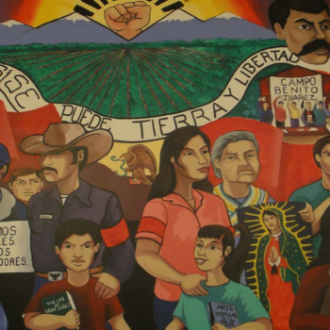

Caravan signs in a car window
by Kate Hamman, NFWM
On Friday, June 12th, I joined FLOC organizers, Triangle Friends of Farmworkers, and volunteers in a car caravan rally to welcome back four of FLOC’s “Barajas Comite” workers. Last summer, Salvador Barajas, a notorious Farm Labor Contractor, blacklisted a group of more than 20 farm workers after they quit their jobs to demand that Barajas comply with the H-2A visa program requirements. Farm workers had accused Barajas of failure to provide three meals a day and a lack of reimbursement for their inbound and outbound travel expenses. Over the past year, FLOC has been working hard to hold Barajas accountable for his illegal, unjust actions and to ensure that the blacklisted workers be rehired for this season. The car caravan was a continuation of this work as we celebrated the return of the first four workers to Whitakers, NC and protested a neighboring farm that refused to rehire the workers.
With signs of solidarity taped to our car windows, we drove into the first farm labor camp, horns honking and hands waving. I felt grateful for FLOC’s organizing creativity during this Covid-19 pandemic. Even though it was strange to welcome the workers back while practicing social distancing, I was reminded of how powerful it is to show up for our neighbors with our bodies, words, and PPE supplies! Leticia Zavala, organizing director for FLOC, took the opportunity to share the returning workers’ story with the 80+ people in the camp, and to make sure they knew that FLOC was there to support them, too. One volunteer brought her guitar and we all clapped and sang along to a song in English and Spanish. There were lots of smiles shared between farm workers and the caravan crew as we honked our way out down the long dirt road.
Once we made it back to the paved road, we caravanned past the neighboring farm who had previously employed some of the blacklisted workers, but refused to rehire them this year. Again, we made lots of noise but this time our tone was notably different. We were met with silence when no one emerged from the large house at the entrance. We made our way toward another house that bordered the fields where farm workers were eating lunch. Even though the employer was unwilling to engage, it was once again powerful to be a part of FLOC’s determination to connect with farm workers, remind them of their power, and organize support. While turning onto the main road, we drew the attention of a few neighbors standing on their porches.
I was left to wonder how public actions like our long line of loud and colorful cars challenge not only those in power but their neighbors, too. In what ways do protests draw each of us out and towards our neighbors?


